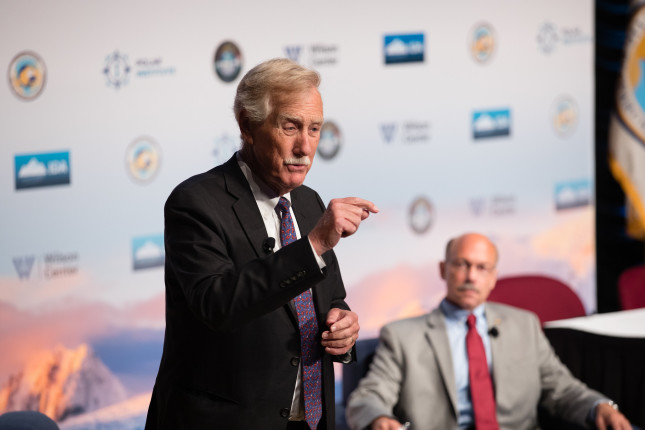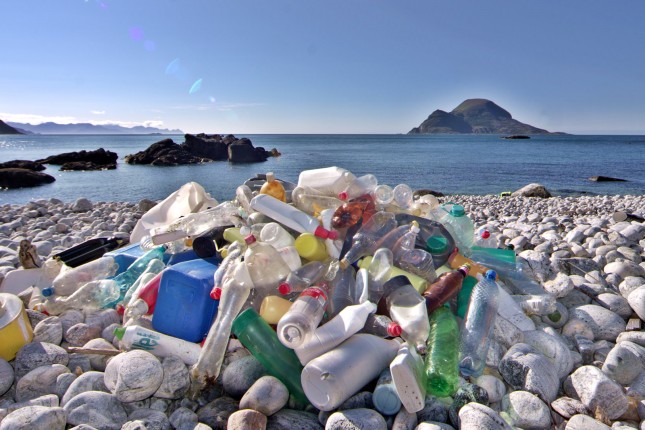-
Our Ocean and Cryosphere Under Threat
› Evidence of the effects of climate change continues to mount. We see it in extreme weather events, including droughts and intense hurricanes and cyclones, in biodiversity loss, and in erratic weather patterns around the globe. While many of these impacts rightfully make it into front-page news, climate change is also profoundly affecting parts of our planet that we do not understand well—the ocean and the cryosphere.
Evidence of the effects of climate change continues to mount. We see it in extreme weather events, including droughts and intense hurricanes and cyclones, in biodiversity loss, and in erratic weather patterns around the globe. While many of these impacts rightfully make it into front-page news, climate change is also profoundly affecting parts of our planet that we do not understand well—the ocean and the cryosphere.In September 2019, the International Panel on Climate Change issued a Special Report on the Ocean and Cryosphere in a Changing Climate (SROCC). The report provides a new and sobering analysis of current conditions, as well as projections into the future. Produced by more than 100 authors from 36 countries, the SROCC painstakingly reviews the latest scientific literature, referencing some 7,000 scientific publications in all.
-
Two Divergent Paths for Our Planet Revealed in New IPCC Report on Oceans and Cryosphere
›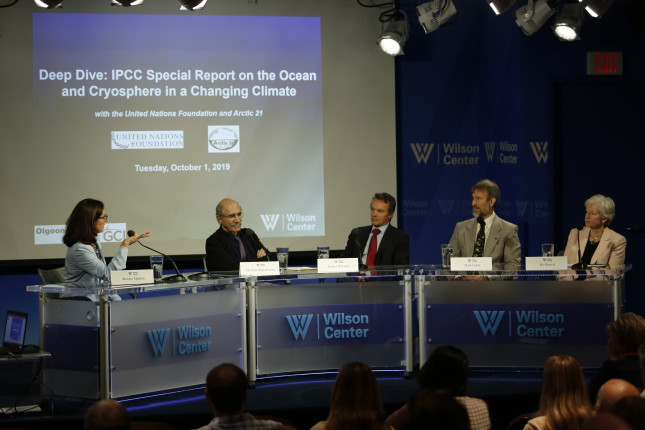
The world’s ocean and cryosphere have been absorbing the heat from climate change for decades, said Intergovernmental Panel on Climate Change (IPCC) Vice Chair Ko Barrett at a recent Wilson Center event on the IPCC’s Special Report on Oceans and Cryosphere. “The consequences for nature and humanity are sweeping and severe,” she said.
-
Upcycling ‘Beach Snow’: Clearing Taiwan’s Oyster Farming Marine Debris
›
“If you go to some Taiwan beaches, you can see snow,” said Chieh-Shen (Jason) Hu, Ocean Initiative Coordinator for Taiwan’s Society of Wilderness, a 6,000-member organization similar to Sierra Club. Hu was referring to pervasive Styrofoam marine debris from western Taiwan’s oldest industry, oyster aquaculture.
-
Nothing Marvelous About Plastic Waste: China’s Pollution Endgame
›
Our world is drowning in plastic pollution with nearly 8 million tons of single-use plastic and some 700,000 tons of abandoned fishing gear leaking into marine ecosystems each year. Plastic waste endangers marine species. For example, animals become entangled in abandoned nets. Marine birds, fish, whales and sharks are sickened or die when they accidentally ingest plastic. According to a 2017 study, around 90 percent of single-use plastic that pollutes our oceans comes from 10 rivers, 6 of which are in China. No Avenger superheroes can make this problem go away; rather the world needs heroic efforts by consumers, businesses, and governments to curb these plastic leaks. Encouragingly, China’s war on pollution has catalyzed new bottom-up activism and top-down policies that are starting to spur action to reduce plastic leakage.
-
With Knowledge Comes Responsibility: A Conversation with Sylvia Earle on the Ocean
› “Having a planet that is suitable for us has taken a very long time, like four and a half billion years,” said Sylvia Earle, Explorer in Residence at the National Geographic Society, in a podcast interview with Ambassador David Balton before a recent Wilson Center event on marine protected areas. “It’s taken us about four and a half decades to significantly unravel, deplete, [and] modify those precious systems that really have little margin of error.”
“Having a planet that is suitable for us has taken a very long time, like four and a half billion years,” said Sylvia Earle, Explorer in Residence at the National Geographic Society, in a podcast interview with Ambassador David Balton before a recent Wilson Center event on marine protected areas. “It’s taken us about four and a half decades to significantly unravel, deplete, [and] modify those precious systems that really have little margin of error.” -
Concerns Rise Over Governance Gap in Arctic
›
“We’re attempting to do something that’s never been done before in world history,” said Senator Angus King (I-ME). “The peaceful development of a major new physical asset.” He spoke of the Arctic Ocean at the 8th Symposium on the Impacts of an Ice-Diminishing Arctic on Naval and Maritime Operations. The symposium was hosted by the Wilson Center’s Polar Institute, in partnership with the U.S. Arctic Research Commission, U.S. National Ice Center, Arctic Domain Awareness Center, Patuxent Partnership, St. Mary’s College of Maryland, and the Ronald Reagan Building and International Trade Center.
-
High Seas Biodiversity Treaty Would Prioritize Conservation
›
Roughly 20 organizations wield some management authority in the high seas, but none of them have conservation as their core mandate, said Liz Karan, Senior Manager of the Protecting Ocean Life on the High Sea Campaign at the Pew Charitable Trusts. She spoke at a recent Wilson Center event hosted by the Polar Institute and Environmental Change and Security Program. The discussion revolved around aspects of a proposed global treaty on conservation and sustainable use of biodiversity in areas beyond the jurisdiction of any country. “The high seas treaty comes in as an opportunity to put conservation at the focus of the discussion of how we manage the high seas,” said Karan.
-
How Protecting the Antarctic Marine Life Could Help Save the Blue Planet
›
“We are stripping the life away from the blue planet,” said oceanographer, explorer, and author, Sylvia A. Earle. She keynoted a recent event on marine protected areas in Antarctica and the high seas co-hosted by the Wilson Center and The Pew Charitable Trusts with support from the Prince Albert II of Monaco Foundation. “Do we want a planet like Mars?” she said. “Most people would say, ‘I don’t think so. I like to breathe. I like water that falls magically out of the sky. I like having a living planet.’”
Showing posts from category oceans.


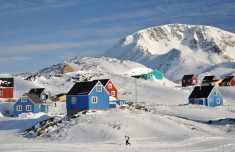 Evidence of the effects of climate change continues to mount. We see it in extreme weather events, including droughts and intense hurricanes and cyclones, in biodiversity loss, and in erratic weather patterns around the globe. While many of these impacts rightfully make it into front-page news, climate change is also profoundly affecting parts of our planet that we do not understand well—the ocean and the cryosphere.
Evidence of the effects of climate change continues to mount. We see it in extreme weather events, including droughts and intense hurricanes and cyclones, in biodiversity loss, and in erratic weather patterns around the globe. While many of these impacts rightfully make it into front-page news, climate change is also profoundly affecting parts of our planet that we do not understand well—the ocean and the cryosphere.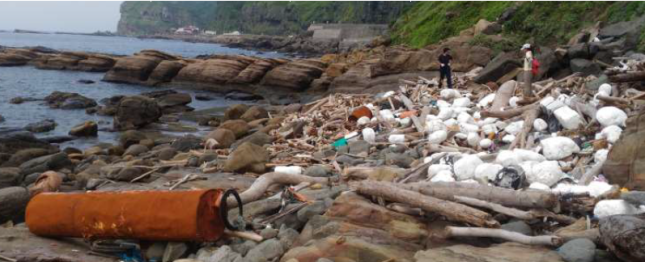
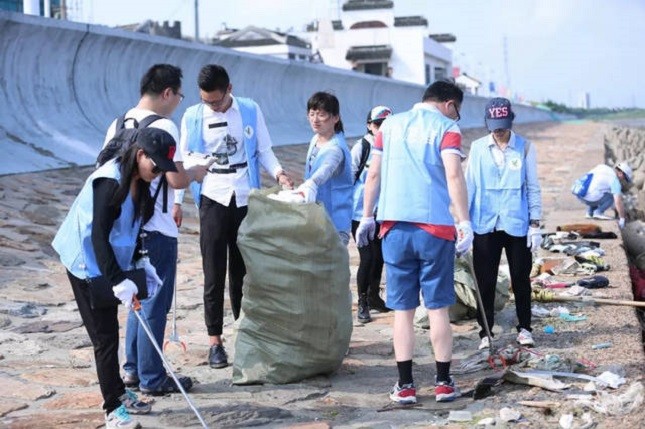
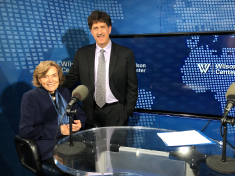 “Having a planet that is suitable for us has taken a very long time, like four and a half billion years,” said Sylvia Earle, Explorer in Residence at the National Geographic Society, in a podcast interview with Ambassador David Balton before a recent Wilson Center
“Having a planet that is suitable for us has taken a very long time, like four and a half billion years,” said Sylvia Earle, Explorer in Residence at the National Geographic Society, in a podcast interview with Ambassador David Balton before a recent Wilson Center 